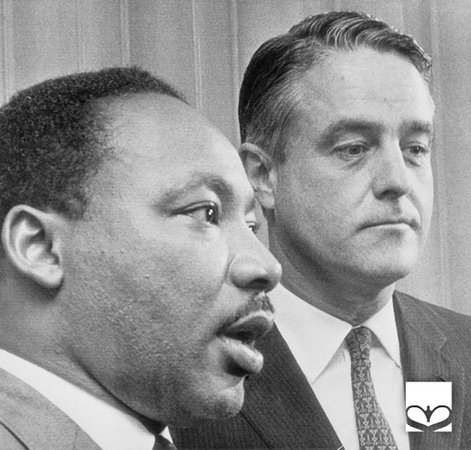Thank you Sargent Shriver and the US Peace Corps.
It was John F. Kennedy who 50 years ago urged the nation "Ask not what your country can do for you. Ask what you can do for your country." But it was Sargent Shriver, his tireless brother-in-law, who put the thought into practice.
Shriver died this week at 95, one of the last of the Camelot clan. But his legacy is more than membership in a political dynasty. It's the Peace Corps, which has sent 200,000-plus Americans of all ages overseas to test their beliefs and share backgrounds with other nations in need of teaching and training.
Shriver almost lived long enough to take part in the 50th anniversary of the Peace Corps coming in March. He was its founder and the guiding light who designed an entirely new foreign policy initiative.
The plan took shape in a post-midnight campaign stop at the University of Michigan, where candidate Kennedy challenged a small audience of students to consider taking their talents overseas to help poor countries. He firmed up the brainstorm thought and gave it the name Peace Corps in a later speech in San Francisco. A catchy idea was born, but there was no blueprint on how to make it work, a sign that the endeavor might be only a campaign gimmick.
When Kennedy won office, he picked Shriver, a campaign insider married to his sister, to road test the sketchy idea. As Shriver recalled it, "Everyone in Washington seemed to think that the Peace Corps was going to be the biggest fiasco in history, and it would be much easier to fire a relative than a friend."
But the new director become a true believer and turned the idea into a success, one of the most lasting of the gilded Kennedy era. His enthusiasm and drive gave the new program the spark it needed to survive, even though early recruits and target-country staffers received only bare-bones training. Shriver spent weeks in the world's backcountry, cheering up volunteers and urging them on.
Both then and now, Africa remains the top destination. But, as an example of the program's evolving character, the focus has grown from teaching English to include AIDS/HIV work in the continent most afflicted with the epidemic.
The Peace Corps survived the Vietnam era, the Cold War and independence movements in host countries that often saw Washington as an enemy. It covers only basic living expenses and discourages both staff and volunteers from making a career in the organization, a tone set by Shriver who disliked bureaucracies.
Its informal slogan - low pay, lousy conditions, brutal weather - left no mystery about the nature of the job. But the plain message of public service on a worldwide stage took hold and never faded. Most Peace Corps veterans regard their time as the most memorable experience in their lives. They stay in touch with each other and remain immersed in public service.
The organization has served the nation in other ways, providing a nonmilitary foreign policy option. It's remained an integral part of "soft power," a benign form of aid and development that spreads American idealism in personal terms. The result is a political rarity: across-the-aisle support for the Peace Corps and its yearly budget of $400 million. A columnist for the conservative National Review's online publication this week suggested the liberal-authored institution be nominated for the next Nobel Peace Prize.
Monumental as it is, the Peace Corps wasn't Shriver's only feat. After the Kennedy years, he went on to launch Head Start, Legal Services for the Poor and VISTA, a home-grown version of the Peace Corps. He served as ambassador to France and helped his wife Eunice found the Special Olympics for developmentally disabled athletes. Among his few setbacks was a run as vice president with George McGovern on the Democratic ticket in 1972 and a later run on his own as a presidential contender. Both ended in sharp defeat. Shriver was a man who couldn't resist public service or devising new ways to channel his restless volunteer spirit.
Though he faded from public view over the last decade due to his advanced age and the onset of Alzheimer's disease, his message is still as fresh and timeless. In a culture soaked in celebrity and material success, the idea of public service and humble personal action should have a role, too. That was the message of the Peace Corps back then, and it remains true today, a half century later.
Ambassadors to the world:
Volunteers to date: 200,000-plus
Countries served: 139
Gender of volunteers: 60 percent female, 40 percent male
Average age: 28
Volunteers over 50: 7 percent
Marital status: 93 percent single
Pay: Living allowance; $7,425 payment upon returning home
Term: 27 months
Main activities: Education, 37 percent; health and AIDS, 22 percent; business development, 14 percent
Largest service areas: Africa, 37 percent; Latin America, 24 percent; Eastern Europe/Central Asia, 21 percent



Results 1 to 2 of 2
-
01-22-2011, 11:44 PM #1
 Thank you Sargent Shriver and the US Peace Corps.
Thank you Sargent Shriver and the US Peace Corps.
Last edited by LeslieWest_GuitarGod; 01-23-2011 at 12:03 AM.

TYRS PALADIUM - A Premier Dungeons & Dragons Online Guild
No Drama. Cameraderie. TEAM Focus. That's the TYRS way. If that's your style, come join us!
Research our Guild here: Read our official Recruitment thread | Sign up here: Tyrs Guild Website! | GHALLANDA GUILD LEADERS: Join the Fellowship!
-
01-23-2011, 12:16 AM #2Community Member



- Join Date
- Oct 2006
- Posts
- 568

blah
Wherever you went - here you are.






 Reply With Quote
Reply With Quote